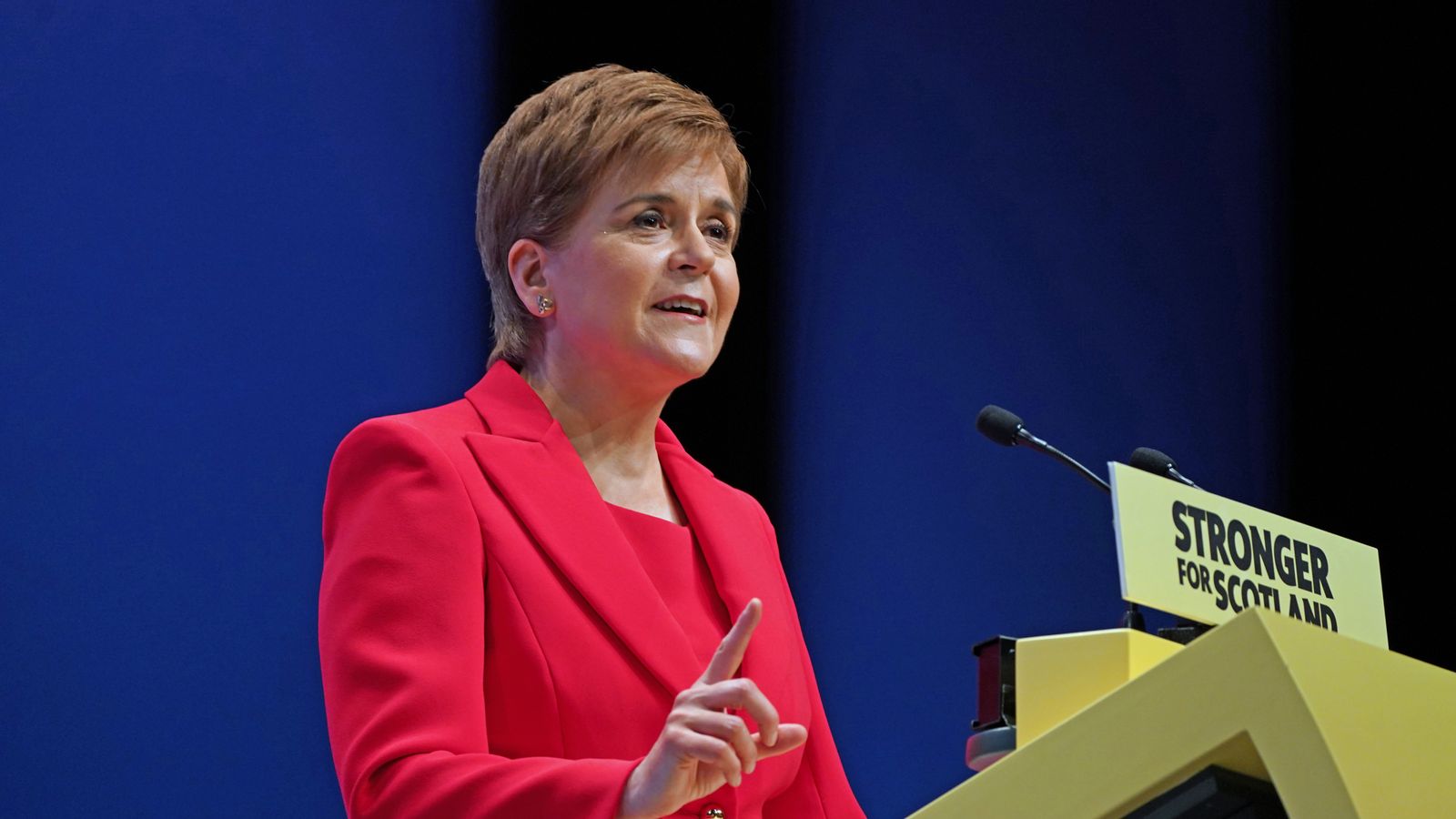Has Rishi Sunak blundered by opting for long, six-week election campaign?


The grim news for the Tories in the latest Sky News/YouGov poll begs another question about Rishi Sunak’s political judgement. Was a long election campaign a blunder?
The prime minister is already under fire from Conservative MPs and activists for gambling on an election in July rather than waiting for October or November.
The conventional wisdom was that economic news would be better by the autumn and deportation flights to Rwanda would help stop the boats bringing migrants across the Channel.
Election latest: ‘Real collapse’ for Tories after ‘uplift’ in support for Reform
But as well as doubts about a July poll, the big slump in Tory support since the last Sky News/YouGov poll on June 3, suggests a long campaign of six weeks may also have backfired.
On 22 May, the day the prime minister made his shock general election announcement, some veteran Tory MPs privately questioned Mr Sunak’s decision to fight a long campaign.
“Margaret used to have three or four-week campaigns,” one long-serving Conservative MP who has stepped down told Sky News, in a reference to three-times election winner Mrs Thatcher.
But with the Tories trailing badly behind Labour in the polls for months, Mr Sunak clearly hoped a long election campaign would give his party more time to recover and close the gap.
However, the opposite appears to have happened. As the campaign continues, with polling day still two weeks away, opinion polls are suggesting bigger Conservative losses, not smaller.
Advertisement
Please use Chrome browser for a more accessible video player
4:13
Poll: Labour on course for best-ever election result
On 3 June our YouGov poll suggested the Conservatives would hold 140 seats. Now the same pollsters are suggesting they’d hold just 108, well below their previous lowest of 141 in 1906.
The big change of course, has been Nigel Farage’s dramatic comeback as Reform UK leader on 3 June. In the Sky News/YouGov poll that day, Reform UK was not forecast to win any seats.
Now it’s five, including Mr Farage in Clacton. The other big movers are the Liberal Democrats, forecast to win 48 seats on 3 June, now 67. The latest poll is good news for smaller parties generally.
Labour’s seat projection is up slightly from 422 seats to 425 and its majority is up from 194 to 200. But it’s the Tory slump that’s the big change since the early days of the campaign.
So are those veteran MPs who lamented the glory days of Mrs Thatcher correct about previous Tory prime ministers opting for shorter campaigns? It would appear so.
Had Mr Sunak waited to call the election until January 2025 – the end of a maximum five-year term – parliament would have automatically been dissolved 25 working days before polling day, meaning he could have opted for a shorter campaign.
In 1983, when Mrs Thatcher won a landslide majority of 144 seats, she had announced the election on 9 May, parliament was dissolved on 13 May and polling day was four weeks later on 9 June.

It was a similar story in 1987. Mrs Thatcher announced the election on 11 May and polling day was a month later on 11 June, when she won a second landslide and a majority of 102.
Read More:
What the parties are promising
Check which party could win in your constituency
In 1992, when Sir John Major pulled off a shock victory after months of trailing Neil Kinnock’s Labour badly in the opinion polls, the election campaign again lasted just 30 days.
Sir John asked the Queen to dissolve parliament on 11 March and voters went to polls on 9 April, when the Conservatives won a 21-seat majority over Labour.
Lord Cameron’s 2015 campaign, after five years of a Conservative-Liberal Democrat coalition was longer. Parliament was dissolved on 30 March and the election was on 7 May, when he won a Tory majority of 10.

In the most recent general election, Boris Johnson’s dash to the polls in 2019, parliament was dissolved on 6 November and the election was on 12 December, with Mr Johnson winning an 80-seat majority.
This time, Mr Sunak has chosen a gruelling six-week campaign. More time for mistakes? And more time for the Tories’ opponents – Labour, the Lib Dems and Reform UK – to gain momentum?
It’s starting to look like that. At times since his D-day fiasco, the prime minister has looked crestfallen. Now senior Tories are talking about a Labour “super-majority” and a “blank cheque” for Sir Keir Starmer.
And there are still two weeks to go in this long, six-week campaign. But that was Mr Sunak’s choice.

